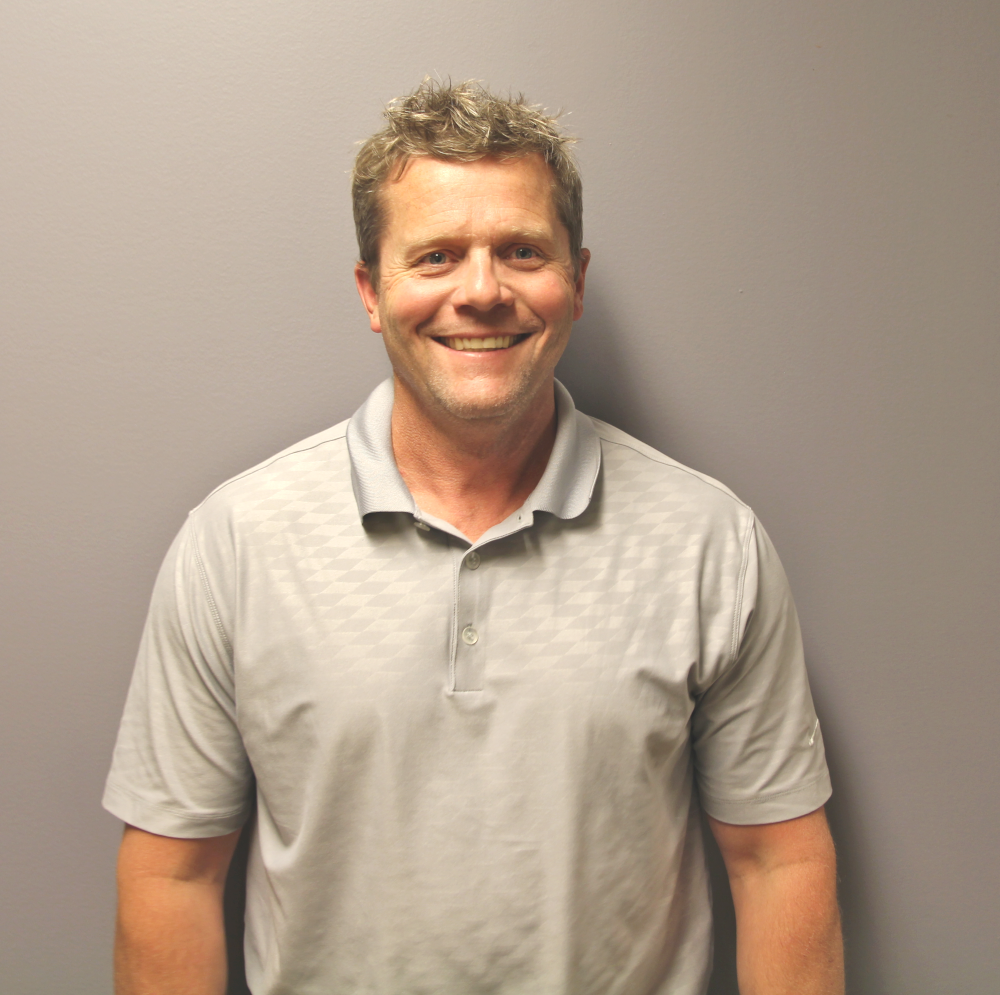Getting Back on Track
by Matt Prokopchuk
 John Ross is the director of medicine, patient flow and partnerships at the hospital, and is the head of its COVID-19 incident management team’s situation table.
John Ross is the director of medicine, patient flow and partnerships at the hospital, and is the head of its COVID-19 incident management team’s situation table.Q & A with Thunder Bay Regional Health Sciences Centre’s John Ross
(Originally published in the March 2021 edition of The Walleye Magazine)
“I’m the person that’s in charge of moving people in and out of the building,” John Ross says, describing his role at the Thunder Bay Regional Health Sciences Centre. Ross is the director of medicine, patient flow and partnerships at the hospital, and is the head of its COVID-19 incident management team’s situation table. Not only is he responsible for making sure patients are where they need to be when they come to the health sciences centre, he’s also in charge of the institution’s planning around discharging patients, and organizing the after-care they need. We spoke with Ross about how the hospital is dealing with a backlog of non-emergency surgeries, and how he feels his job has changed in the past 12 months.
The Walleye: How has your role evolved over the past year?
John Ross: When we first started this [the pandemic], I was in the planning section, the head of planning. We had to do a lot of […] things like locking the doors, having screening at doors, just different things like that—decreasing our capacity to meet the needs of what we expected to COVID to cause. Probably around January or February of this year, as things started to slow down and we started to ramp up our services again, trying to catch up—the [operating room] is running basically at 120% capacity from what it did two years ago—we went into more of a situation unit. We try to balance what’s coming in with coming out for our capacity—reporting on any outbreaks, reporting on what’s happening in the community, where difficulties are—and feeding that up to the [incident management team] on a regular basis, so that we can adjust to things on the fly as they’re happening.
TW: What kinds of surgeries have been postponed over the past year?
JR: Everything. Hips, knees, plastics, cataracts, abdominal surgeries, cancer surgeries, everything. We want to be back up to where we were a year ago [editor’s note: Ross says it will likely take until September for that to happen]. [Having] people waiting for surgeries just causes more problems. And that’s another problem, even with our general medicine types of patients. For a long time, people weren’t coming in because everybody was scared of COVID—these people stayed home when maybe they should have been in here getting treatment, and they got sicker. So we’re finding that our length of stays on patients is a little [longer] than what it was even last year, and people are showing up to our facility really sick. By stopping what we were doing previously didn’t really help anything; it wasn’t in the best interests of anybody.
TW: Why the slowdown in surgeries?
JR: The province told us that we had to decrease our capacity, decrease the amount of surgeries that we were doing when this first started, right? The province wanted us to make capacity [free up beds and staff] in the building; they wanted us to stop all the elective surgeries […] because nobody had any idea what was going to happen. We were all thinking about Italy at the time, the worst-case scenarios, and we were all trying to get ready for that. Fortunately, that didn’t happen, and we dodged a bullet there. But the province was actually instructing us that we needed to slow down and we needed to get ready for the worst, and that’s what we did.
TW: How has the past year changed how you do your job?
JR: I’m much more aware of community needs and regional needs than I was previously. It was always part of my job to support the region and the community in what they needed from the hospital, but I’m way more aware of […] what’s happening with them and where their barriers are, and we’re trying to work with them to support them where we can at the hospital. What I’m really excited about is the compliance of Thunder Bay as a whole, basically following the rules outlined by the province. We have very [few] people here who are refusing to wear masks, everybody comes through and checks in […] and hand-washing has increased significantly. We have some rules that we’ve had to establish that aren’t very nice, like the [hospital] visitation rules and the care partner rules. Nobody likes that here—we want to have people coming in and visiting, we think it’s part of the healing process—but because of what’s going on in the community, we can’t. We’ve had very little pushback from any of these things that we’ve had to do as far as our patients and their families.